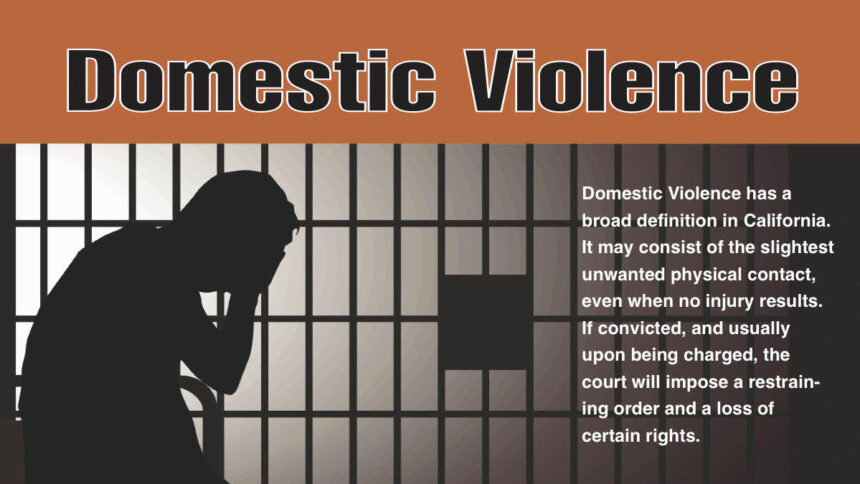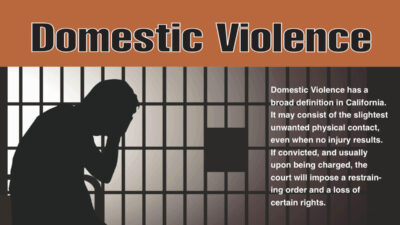Domestic Violence Charges
If a 911 call is made regarding a domestic disturbance, there is a very good chance that someone will be arrested and charged with a Domestic Violence offense. California law requires law enforcement officers responding to a call for even the most minor incident of Domestic Violence to arrest the person who they deem to be the dominant aggressor.
If there is any evidence of injury, even the smallest red mark, the party arrested could be charged with a felony. Other charges that may apply to a domestic violence allegation include criminal threats, spousal battery, assault with a deadly weapon or force likely to produce great bodily injury, or vandalism.
Charges Cannot Be Dropped
There is a misconception that a spouse/partner/girlfriend etc can “drop” the charges after he or she has called the police and you have been arrested. They can’t. The District Attorney’s office will not drop charges in a Domestic Violence case simply because a week or a month later the “victim” wants to drop the charges. The decision to file or not file a case is solely in the discretion of the D.A.’s office.
Consequences
The consequences of a Domestic Violence conviction can last a lifetime. These crimes carry heavy fines, mandatory classes that last a year, jail or prison sentences, and are defined as crimes of moral turpitude. More-over, some of them can be “strike” offenses for purposes of the Three Strikes Law.
Domestic Violence crimes also can have grave immigration consequences and can lead to deportation from the United States, regardless of how long the person has lived in the United States. Domestic Violence prosecutions also have serious repercussions for child custody disputes. Under California law, a parent convicted of a Domestic Violence offense is presumed to be unfit for sole or joint physical or legal custody of a child. A conviction of even a misdemeanor involving Domestic Violence will subject a person to a ten year ban on firearm ownership under California law and a lifelong ban under federal law.







